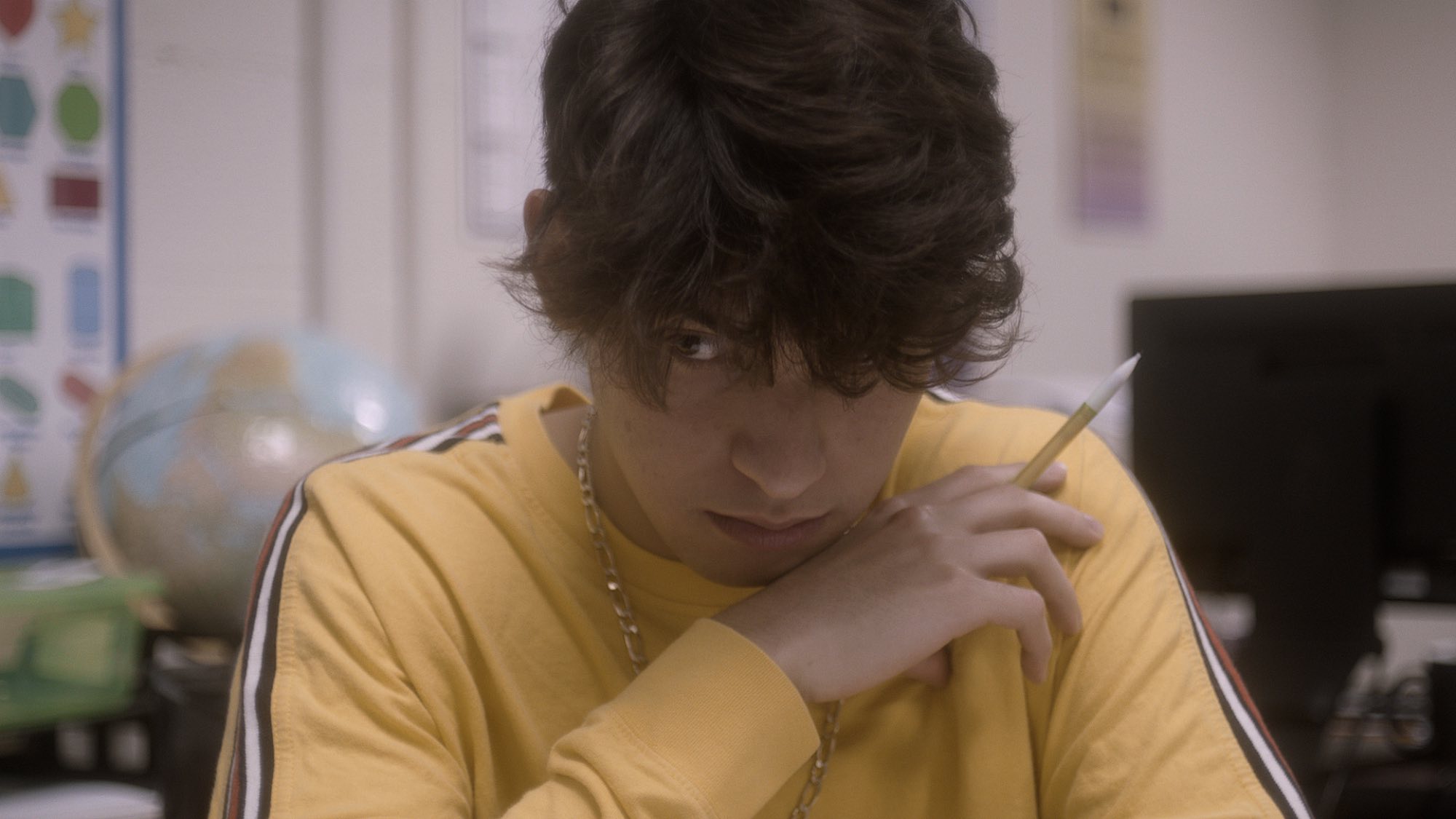
Director Christian Meola’s film The Expanding Horizon is a great example of a short that doesn’t rely on anything big or flashy, at least in the external sense, to achieve a high level of quality. There is no humongous set or sprawling cast of characters, instead, the short harnesses a rich emotional interiority to the characters at play that leaves the viewer with so much to think over after the credits have rolled. Plot-wise, the film follows a teenager who meets with his drug dealing classmate one day after school to make an unusual request. I won’t say much more than that as it’s best going in as organically as possible but trust us when we say that this is a compelling film that is best watched with those you can discuss it with afterwards. DN is proud to be premiering The Expanding Horizon on our pages today, in conjunction with a conversation with Meola where he reveals how the film exemplifies the kind of stories he wants to tell going forward, the process of altering the script to embrace his resources, and the many different interpretations he’s received from audiences on the festival circuit.
Was there a moment or a point where you can recall having the kernel of the idea for The Expanding Horizon?
I first got the idea for The Expanding Horizon in 2018 when I was an ABA instructor in Los Angeles and frequently drove on the highways looming over the San Fernando Valley. I became fixated on one high school in particular that I would drive by on my way to a client in Sun Valley. The view from the looming highway was amazing, you could see the entire building among the vast sprawl surrounding it. There was a construction site next to it with a huge plot of sand and gravel and a half-built structure that someone could easily hide inside and do whatever they wanted. I saw a shot of a high school kid walking from soccer practice down the street, we zoom in as he leaves the lush green field ducks into the building and waits for someone else to join him in the shadows of the LA sunlight.
How did you go about adapting that into a script?
The original script became one of several I wrote but never produced, this was very typical for me in 2018 when I was falling in love with screenwriting and would write pretty much any idea for a script that I thought was worth pursuing even if I didn’t choose to put my money and time into getting it made. I thought of my scripts as short stories and was content having a few friends read them and knowing that they were part of my body of work. But Expanding was always one of my favorite ideas that visually and thematically represented who I am and what I’m interested in as a filmmaker; an emotionally intense event that triggers an internal transformation, portraying a specific type of person and place in America, focusing in on a highly dramatic situation in a mundane and ordinary environment, occupying a genre, coming-of-age, but not delivering on audience expectations, etc.
Expanding was always one of my favorite ideas that visually and thematically represented who I am and what I’m interested in as a filmmaker.
However, I wasn’t sure how to approach working with a team of youth soccer players and I was completely broke. But the real reason the original script wasn’t made was because I was too nervous to make a big move at the time. So, I explored other things that I could make for much less and it sat on my hard drive.
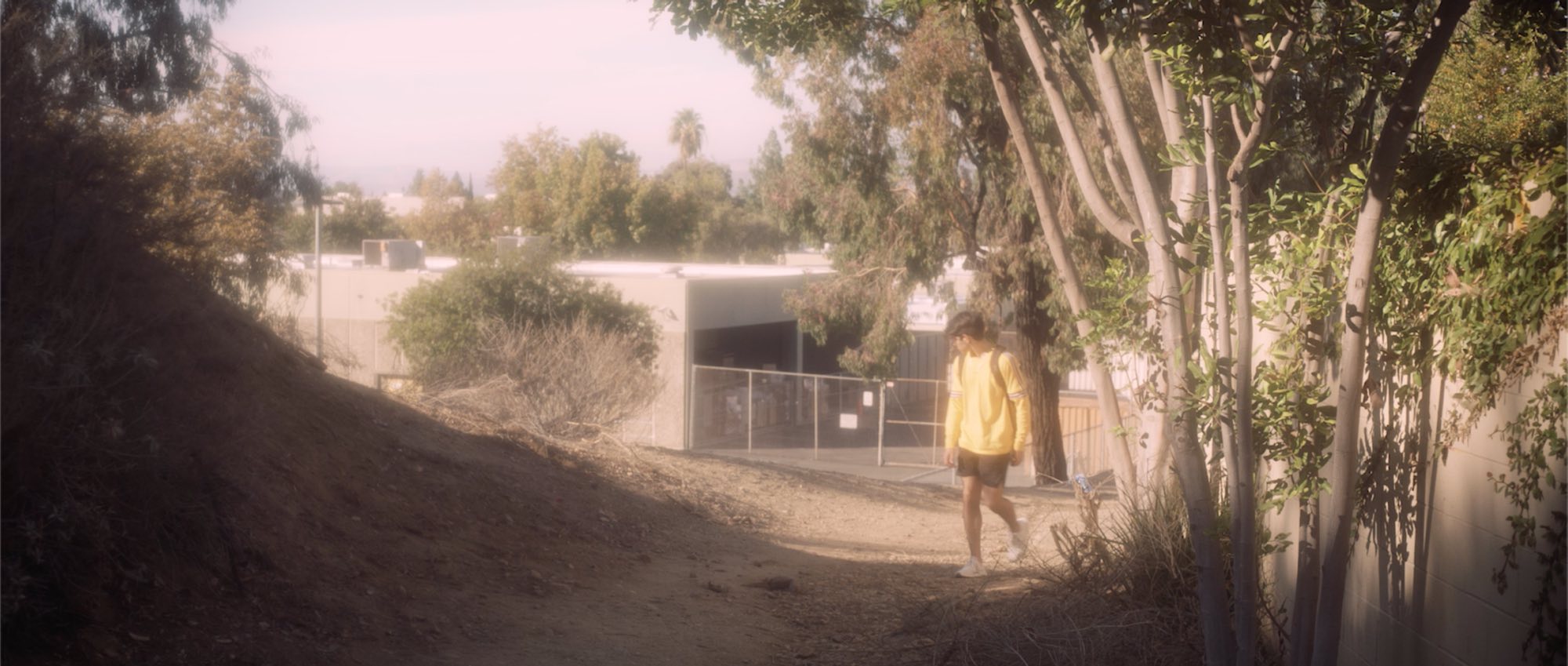
When did you begin to reinvest in the notion of making The Expanding Horizon?
During COVID, I decided to apply for grad schools and needed a visual sample. I wanted to make something new rather than just submit older projects, and out of all the scripts I had written since 2016 that were unproduced, Expanding came to mind first. However, I knew I was going to have to scale back the production and make it simpler, so I changed the context. Originally, the protagonist is on a soccer team and meets up with his team captain, who’s extremely handsome, popular, and a weed dealer. After the interaction on the construction lot, there’s awkward tension between them on the team and the boy decides not to sign up for the next season. I kept the high school setting and characters but changed the context to history class and a potential trip to Europe the school is hosting.
A part of me wishes that the original version was made, the part that clings to an ideal vision of the final result if I had a lot of money, a soccer team of good actors at the ready, and access to a busy highway in Los Angeles for a shot. It’s easy to watch a lot of movies and imagine doing similar scenes with high production value, it’s a lot harder to bring a vision to life from nothing. It would have taken me so much longer to make that first version.
I think you raise a really interesting point there about the pure practicalities of filmmaking. You’re always beholden to the resources you can get, and I think limitations can often aid creativity too.
I think the Expanding you saw reflects a shift from expecting fantasy to manifest to the reality of making a film; there were so many serendipitous gifts that came during production that speak to the beauty of what life naturally brings your way, Sebastian Perez and Javier Duran were my top picks for the roles, and they were the only two people that showed up to the audition. We found a location that was logistically perfect for the choking scene, a trail connected to a park right behind a school in Anaheim, the construction lot made its way in through sound design.
This version’s drug dealer had a more complicated narrative, we don’t see him return to a position of power as a team captain, the two boys are last seen together as students taking an exam on an equal playing field. James does not exit the final frame defeated, having decided not to sign up for the next season, but in a moment of uncertainty, which is more exciting to me. It’s harder to say if this behavior is concerning or self-validating, I leave that up to the viewer to decide.
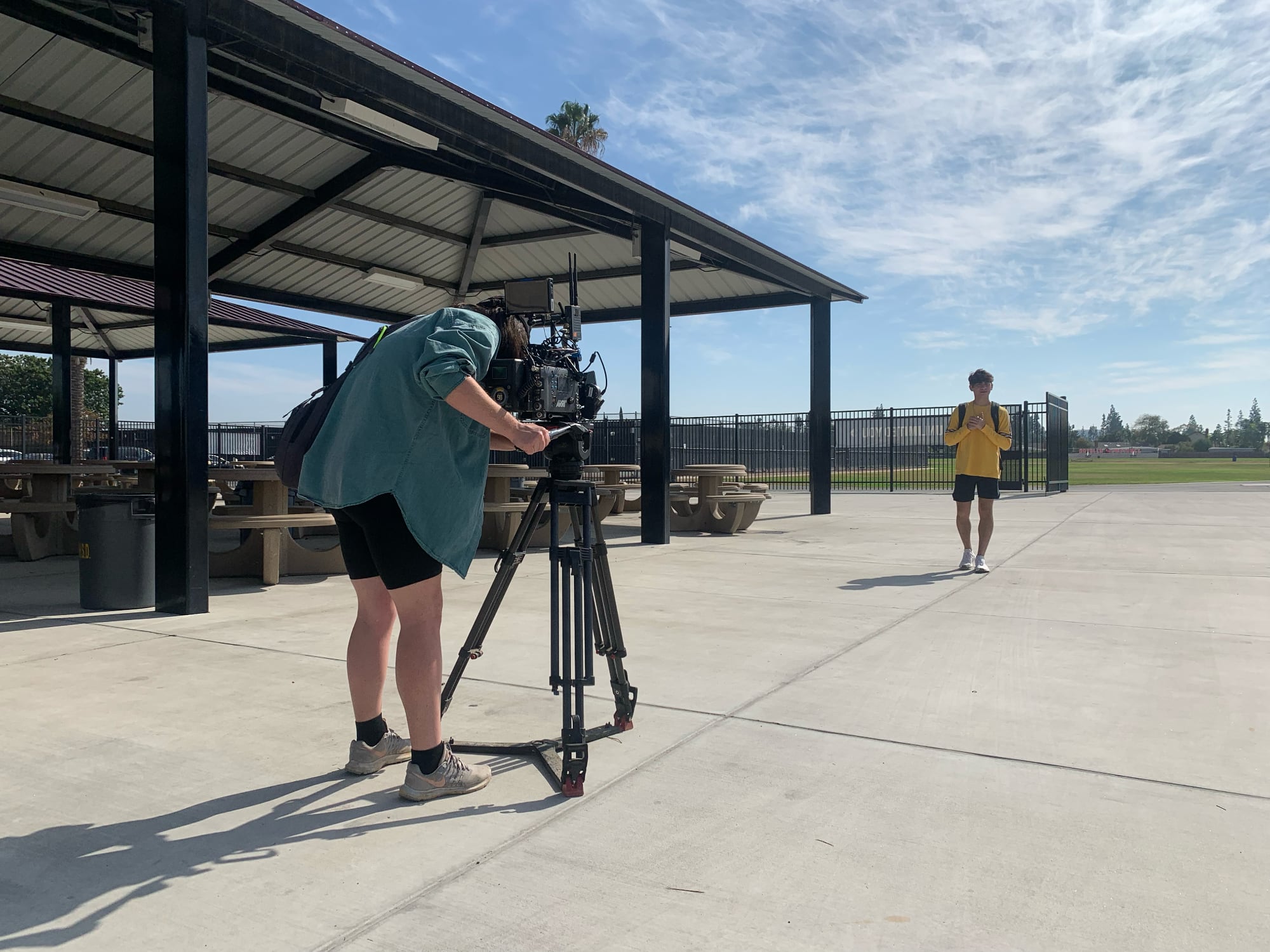
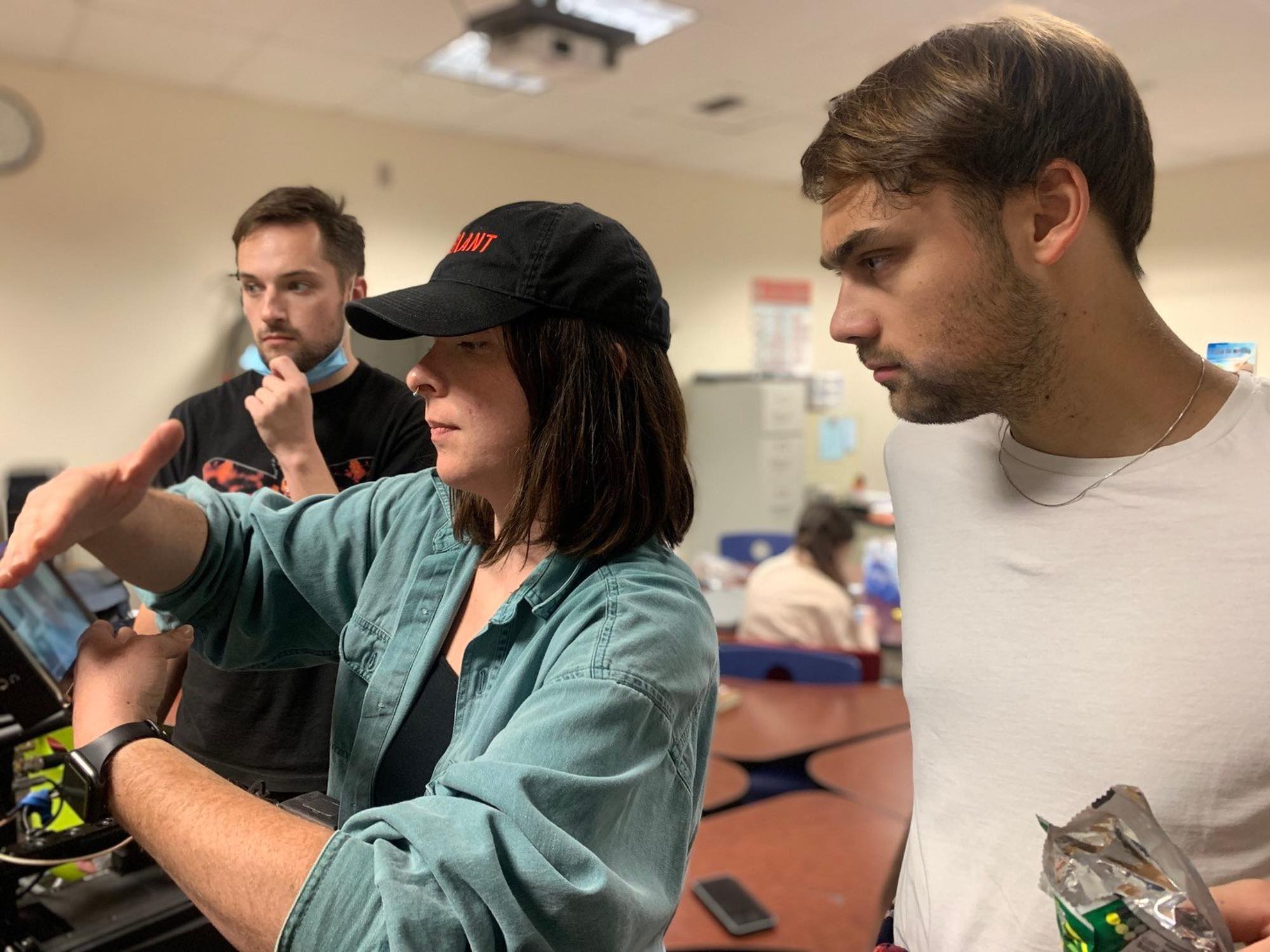
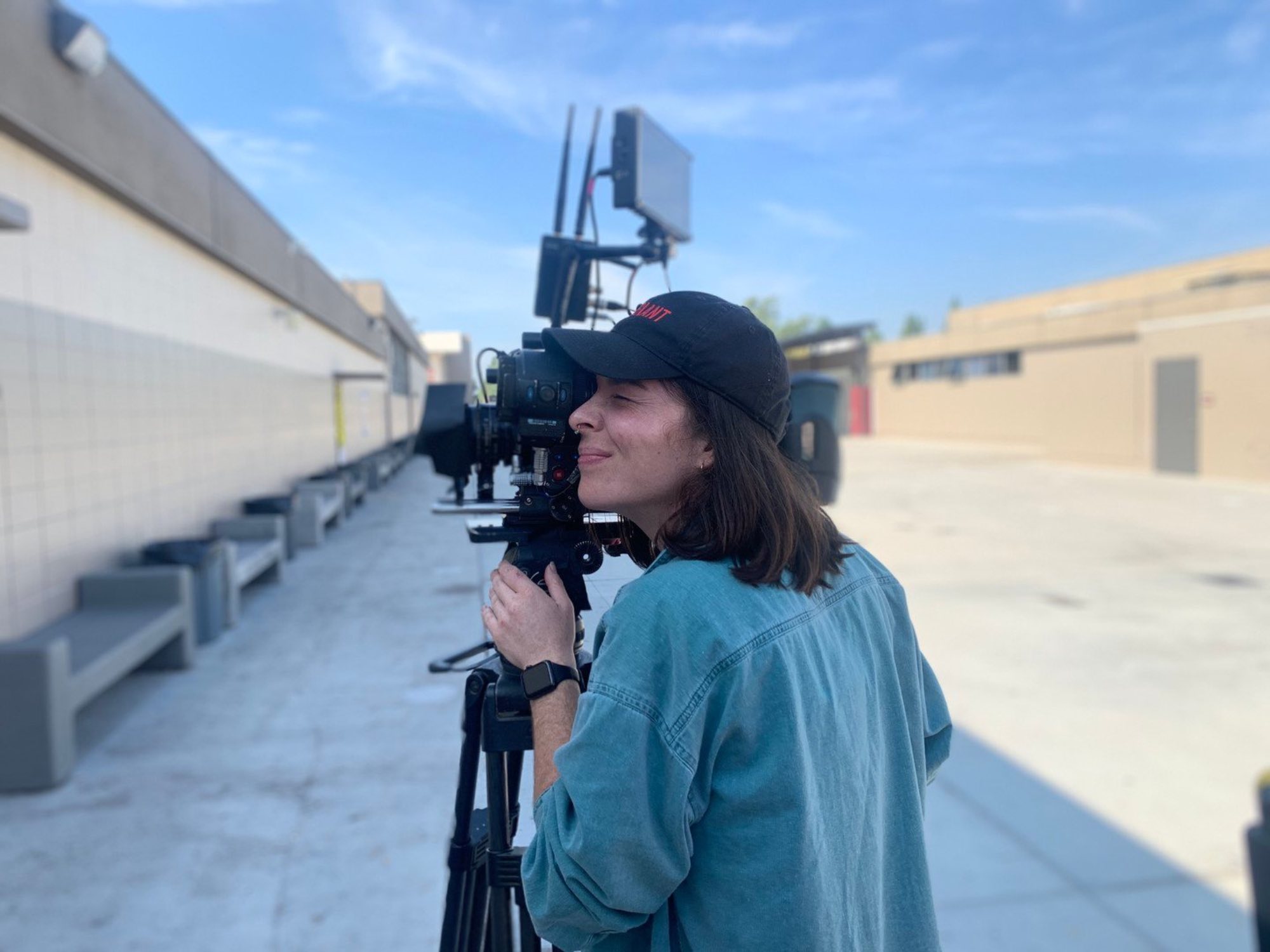
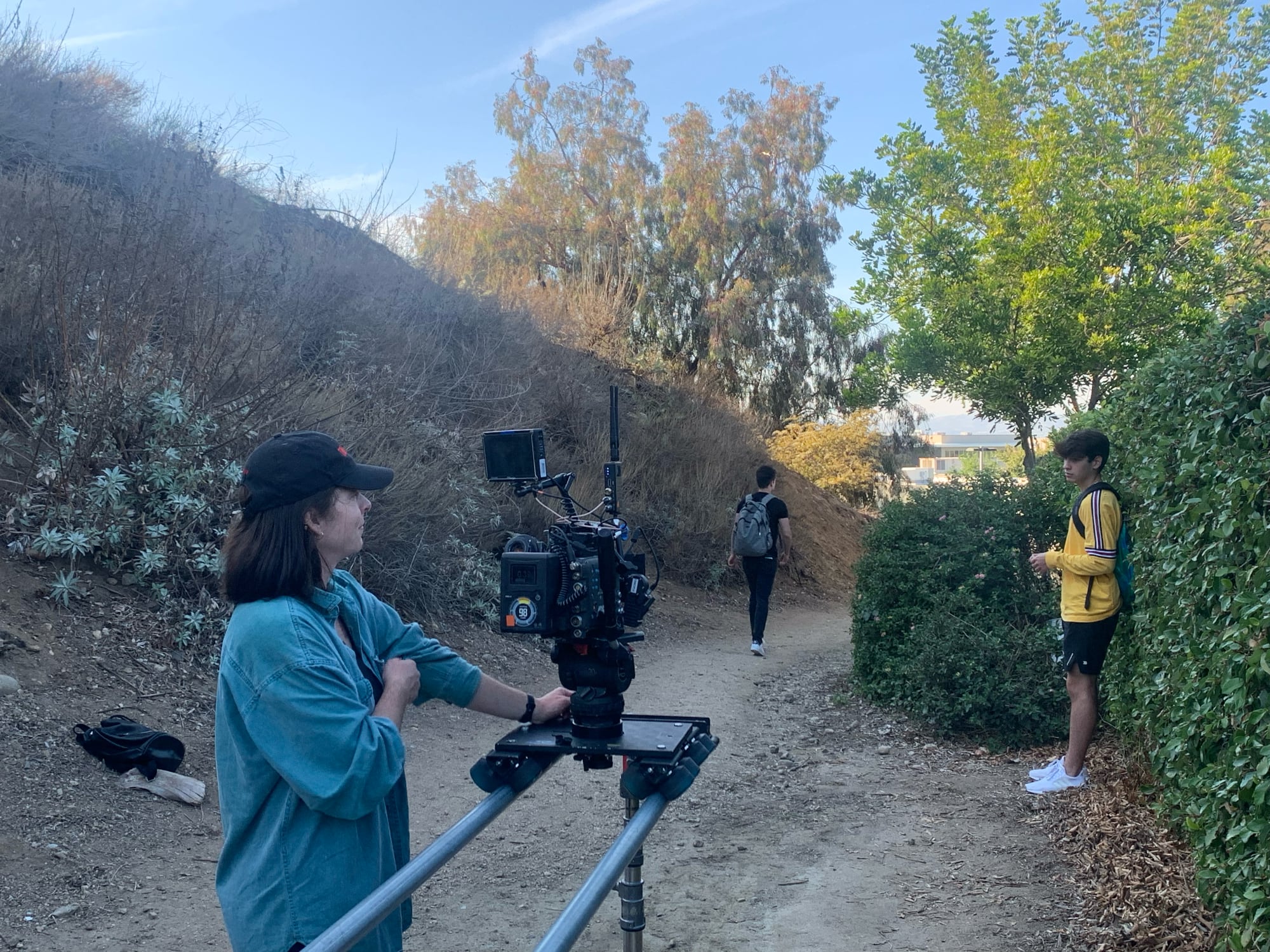
One key aspect of the film that I think is really fascinating is its ambiguity. How has the film been received on the festival circuit? And what interpretations have audiences been offering up to you?
The film has also been invaluable as an introduction to me as a filmmaker. It premiered at Oak Cliff and played at other festivals in Texas as well as Indie Memphis, where I met other programmers, filmmakers, and audiences that seemed to genuinely resonate with it. I got some really interesting interpretations, which was truly unexpected since I felt like the film reflected a truly gay perspective that not everyone saw. Some people saw it as a religious or political allegory for how people are exploited when money is used as leverage. Others saw working through trauma, which wasn’t my intention but I think works. For me, it’s about how power manifests from a place of inferiority in adult interactions that teenagers are just beginning to grasp, through money, sex, violence, etc.
It’s harder to say if this behavior is concerning or self-validating, I leave that up to the viewer to decide.
It is very rooted in growing up deeply closeted and feeling inadequate while the straight guys around me carried so much influence, there was always a fear that they would bully or humiliate me, but I was also deeply attracted to them and wanted their validation. It’s a conflicting experience that brings internal complications that don’t necessarily go away once you come out and become more comfortable with your sexual identity. Knowing I’m not alone in this experience has been motivating and led to potent creative inspiration that I am still exploring in my work. It’s birthed a new kind of character for me, an unassuming, even meek young man who reveals a darker unwavering drive.
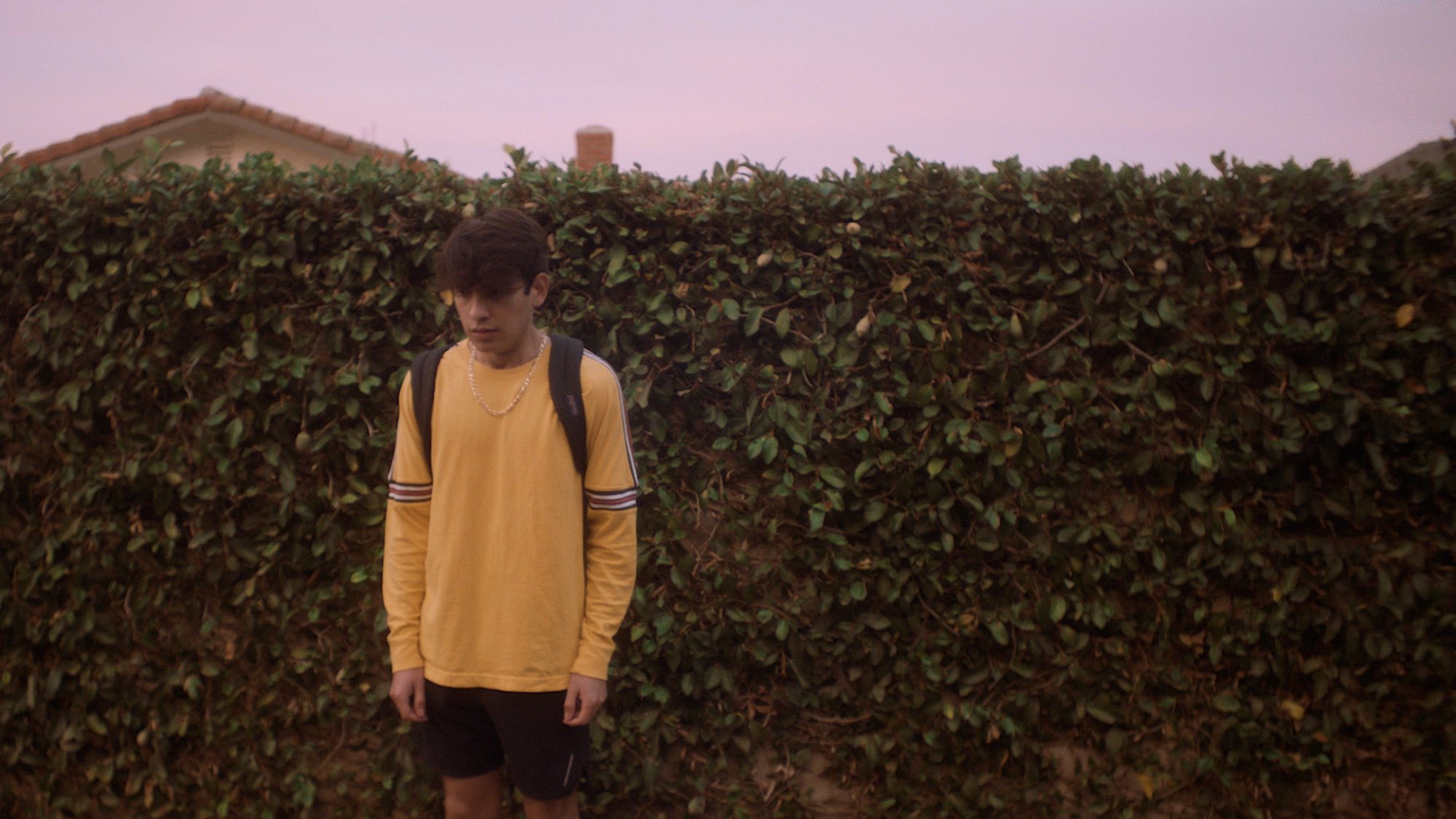
How did you work with your young actors to make them comfortable during the film’s most emotionally intense moment?
I established transparency about what I envisioned for the scene from the beginning. I sent the actors the entire script before the audition so they weren’t left guessing what the rest of the story and tone would be like, the people who were uncomfortable with it cancelled or didn’t show up and the two who came read the entire script and still expressed interest in the roles, so it didn’t feel like I had to convince them; they walked in having read the whole thing and expressed wanting to be in it regardless of the scene. We talked about it immediately after they read the first time and I stressed having an open dialogue about it throughout the rest of the process. But they were very unperturbed by it, they didn’t seem to think it was a big deal. I think they were interested in roles that they don’t usually get to play. Even so, I think being up-front and clear about the entire vision and how I wanted to work helped make them feel like they could trust me.
The actor/director relationship is sacred to me, it’s one of the most valuable and fulfilling aspects of filmmaking.
We rehearsed the scene in person twice, blocking the movement and choreographing the choke, demonstrating how to create the illusion of hands pressing on a neck without actually doing it by tightening the body, thanks to my years in the theatre. But I also checked in with them on set to make sure they felt good about what we were doing and they were happy with their performance. The actor/director relationship is sacred to me, it’s one of the most valuable and fulfilling aspects of filmmaking. I love that it can become a relationship, and that starts with full transparency, trust, and treating them like they are professionals and I believe in them but that they are also involved and creating the vision. Javier and Sebastian were wonderful to work with, open, prepared, and serious but with a great sense of humor. I love them. We still talk. I know they’re very excited about the premiere.
If you don’t mind me asking, how did you source the financing for The Expanding Horizon?
I sourced money for the film from savings I accumulated from working my day job during COVID, production cost $5,500, the most expensive aspect was insurance needed to film at the high school, almost half of the budget. Finding a high school in LA County was awful. They wanted to charge me rates they would ask from studios. So I went to Anaheim which was much more chill and had the perfect location with the park on a mountain above the school! I saved a lot of money filming in OC but spent a lot on festival submissions, I’m not going to lie. It got rejected from most places, it was hard to tell if this was average or if the film was bad and nobody would tell me. Did the plot scare programmers off? I honestly wasn’t sure, which is why I’m so grateful to people like you, James!
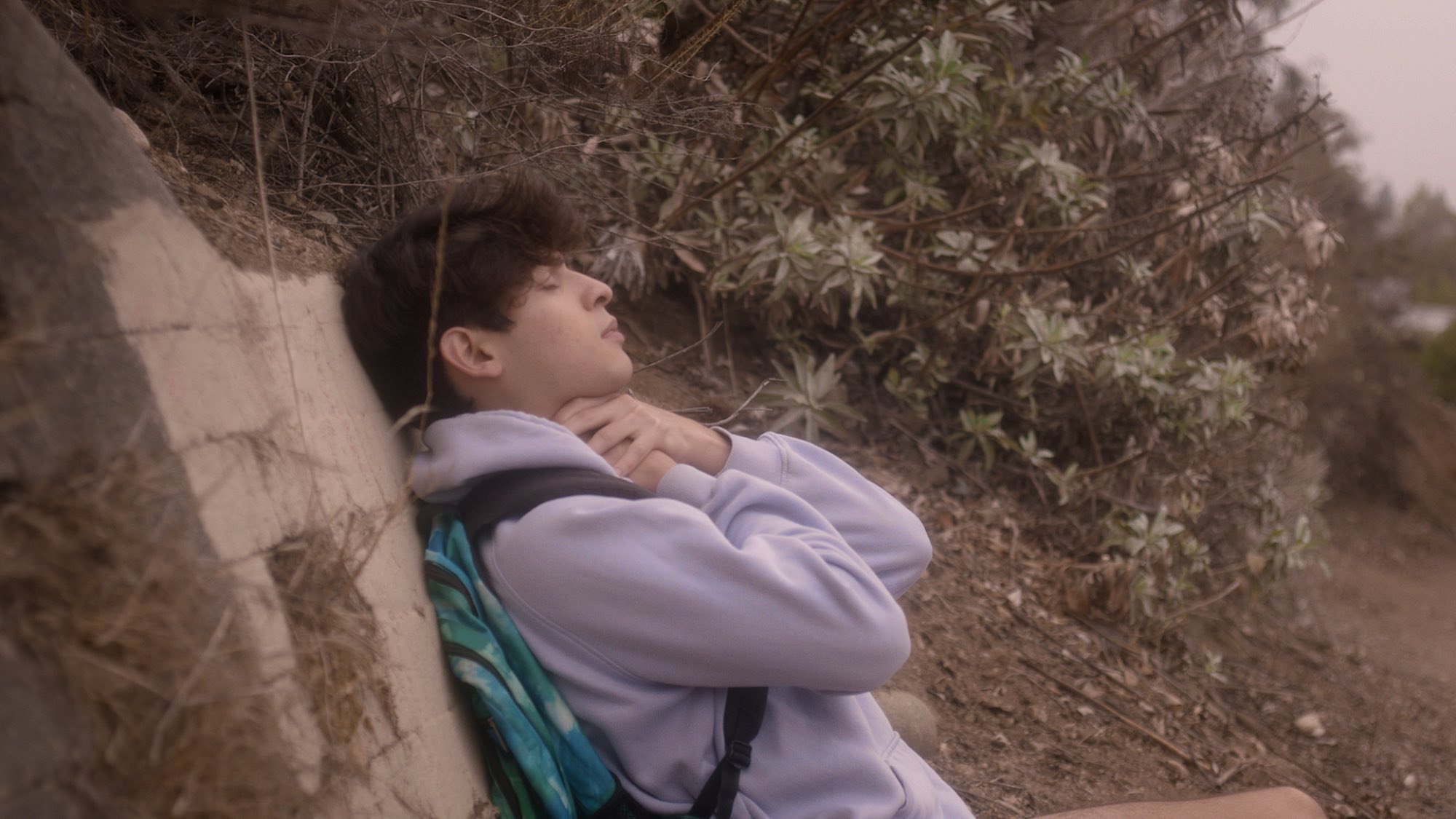
What projects are you working on now?
My experience making The Expanding Horizon and another short called Boys of My Youth from 2018 launched me into the territory I’m exploring now through a series of several dramatic short films about relationships between different types of men; gay and straight, gay and gay, straight men as a collective. I became interested in not just expressing my experience as a gay man in film but also portraying straight men from a gay perspective, inspired by years of being rejected and embraced by them in various situations. My film JIMMY is about a frat guy who has an emotional breakdown that he tries to hold back in public but a gay student witnesses him and starts following him, attracted to this moment of vulnerability beneath a facade of toughness, strength, masculinity. They have a strange encounter like The Expanding Horizon, it’s been interesting to hear people prefer one over the other.
I’m currently in post-production on three other shorts, Not Today, about a group of dudes who realizes one of their buddies is self-harming. Tomorrow, about two guy friends from the same group featured in Not Today who start hanging out one on one and become more vulnerable with each other platonically, and Stardust, about an older man who is visited by a gay fan of his late filmmaker husband, and they enter into a Vertigo-esque relationship where the younger guy becomes a surrogate for the deceased. During The Expanding Horizon, I felt like I was discovering a unique way of working, crafting a stripped-down story focused on an unusual dynamic and encounter, trying to explore things I feel have defined my experience and yet are not depicted in movies, a phase that has continued ever since and will definitely inform my first feature!


